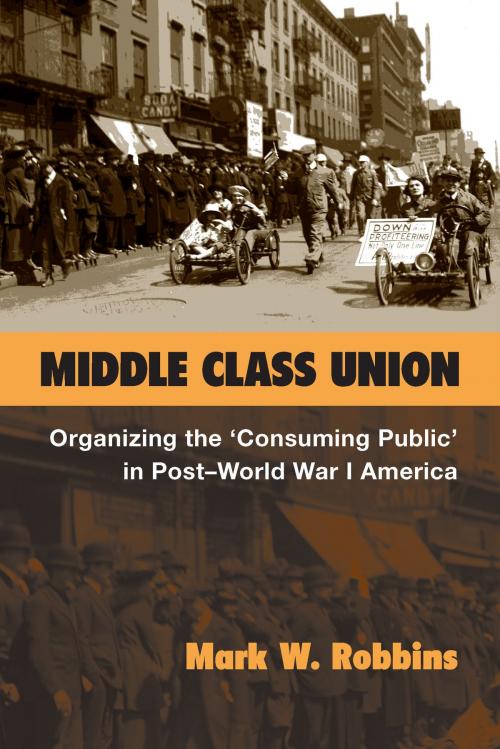Middle Class Union
Organizing the ‘Consuming Public’ in Post-World War I America
Nonfiction, History, Americas, United States, 20th Century, Social & Cultural Studies, Social Science| Author: | Mark W Robbins | ISBN: | 9780472122790 |
| Publisher: | University of Michigan Press | Publication: | May 19, 2017 |
| Imprint: | University of Michigan Press | Language: | English |
| Author: | Mark W Robbins |
| ISBN: | 9780472122790 |
| Publisher: | University of Michigan Press |
| Publication: | May 19, 2017 |
| Imprint: | University of Michigan Press |
| Language: | English |
Middle Class Union argues that the period following World War I was a pivotal moment in the development of middle-class consumer politics in the 20th century. At this time, middle-class Americans politically mobilized to define for society what was fair in the growing consumer marketplace. They projected themselves as guardians of the producerist values of hard work, honesty, and thrift, and called for greater adherence to them among the working and elite classes. In this era and in later periods, they flexed their muscles as consumers, and claimed to defend the values of the nation.
Combining social history with interdisciplinary approaches to the study of consumption and symbolic space, Middle Class Union illustrates how acts of consumption, representations of the middle class in literary, journalistic, and artistic discourses, and ground-level organizing combined to enable white-collar activists to establish themselves as both the middle class and the backbone of the nation. This book contributes to labor history by examining the nexus of class and consumption to show how many white-collar workers drew on their consumer identity to express an anti-labor politics, later facilitating the struggles of unions throughout the post–World War I years. It also contributes to political history by emphasizing how these middle-class activists laid important groundwork for both 1920s business conservatism and New Deal liberalism. They exerted their political influence well before the post–World War II period, when a self-interested and powerful middle-class consumer identity is more widely acknowledged to have taken hold.
Middle Class Union argues that the period following World War I was a pivotal moment in the development of middle-class consumer politics in the 20th century. At this time, middle-class Americans politically mobilized to define for society what was fair in the growing consumer marketplace. They projected themselves as guardians of the producerist values of hard work, honesty, and thrift, and called for greater adherence to them among the working and elite classes. In this era and in later periods, they flexed their muscles as consumers, and claimed to defend the values of the nation.
Combining social history with interdisciplinary approaches to the study of consumption and symbolic space, Middle Class Union illustrates how acts of consumption, representations of the middle class in literary, journalistic, and artistic discourses, and ground-level organizing combined to enable white-collar activists to establish themselves as both the middle class and the backbone of the nation. This book contributes to labor history by examining the nexus of class and consumption to show how many white-collar workers drew on their consumer identity to express an anti-labor politics, later facilitating the struggles of unions throughout the post–World War I years. It also contributes to political history by emphasizing how these middle-class activists laid important groundwork for both 1920s business conservatism and New Deal liberalism. They exerted their political influence well before the post–World War II period, when a self-interested and powerful middle-class consumer identity is more widely acknowledged to have taken hold.















